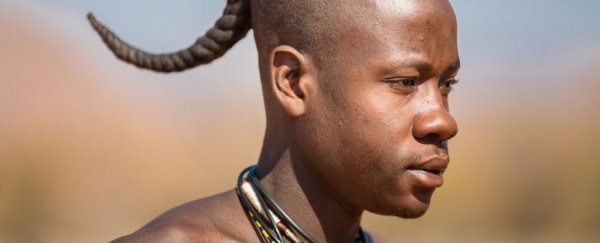We're constantly being told how it's a bad idea to bring electronic devices into the bedroom due to the effect it has on our sleep cycles, and even our reliance on electric lighting after sundown is said to be dangerous to our health.
But just because our modern lives are dominated by artificial lights, glowing screens, and buzzing gadgets that keep us up at night, the funny thing is we're not getting any less sleep than our technology-free ancient ancestors did.
A new study looking at sleeping patterns in three traditional hunter-gatherer tribes suggests ancient humans were just as sleep-deprived as we are, averaging a little under 6.5 hours of shut-eye every night.
"The short sleep in these populations challenges the belief that sleep has been greatly reduced in the 'modern world,'" said Jerome Siegel, a sleep scientist with the University of California, Los Angeles in the US. "This has important implications for the idea that we need to take sleeping pills because sleep has been reduced from its 'natural level' by the widespread use of electricity, TV, the Internet, and so on."
To gauge how much sleep people in pre-industrial societies were getting before the dawn of modern technology, the researchers looked at the sleep habits of three traditional tribes who live much as their forebears did: the Hadza of Tanzania, the San of Namibia, and the Tsimane of Bolivia.
What the researchers found after observing 94 individuals around the clock (amassing some 1,165 days' worth of sleep data in total) was that people living without access to electricity and technology get effectively the same amount of sleep as we do, with a remarkable degree of similarity across the three groups.
The three tribes averaged between 5.7 and 7.1 hours of actual sleep per night, although the overall rest period averaged between 6.9 and 8.5 hours. Despite having no electric lighting, the tribes do not go to sleep at sundown but stay up for a little over 3 hours more, often with the light of small fires. They sleep for an hour extra during winter and rise before the Sun.
According to the researchers, ancient societies' sleeping habits may have more in common with temperature than with the availability of natural light, as the tribes tend to go to sleep when the temperature falls, and they sleep through the coldest part of the night.
"Despite varying genetics, histories, and environments, we find that all three groups show a similar sleep organisation, suggesting that they express core human sleep patterns, probably characteristic of pre-modern-era Homo sapiens," said Siegel.
The findings have been published in Current Biology.
Apart from telling us more about the sleep habits of people in pre-industrial societies (both past and present), the research could also help people in modern societies grapple with contemporary sleep disorders – especially since comparatively few of the tribe members in the study experience insomnia.
"Mimicking aspects of the natural environment experienced by these groups might be effective in treating certain modern sleep disorders," said Siegel, "particularly insomnia, a disorder affecting more than 20 percent of the US population."
And one of the most effective ways to mimic that natural environment is probably not to pull out your smartphone directly before you go to be bed. How come? Watch this.
